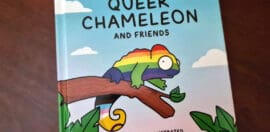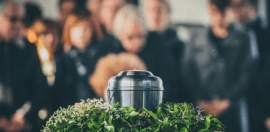Breaking the silence of miscarriage

29 March 2023 at 4:31 pm
Isabelle Oderberg’s debut title unapologetically addresses the stigma surrounding pregnancy loss and presents a case for much-needed change.
Miscarriage is the most common complication of pregnancy, affecting up to 150,000 Australian families every year. Yet despite its prevalence, the traumatic experience of pregnancy loss compounds further grief due to a culture of silence in our communities.
Hard to Bear: Investigating the science and silence of miscarriage aims to bring this taboo to light, exploring the impact of medical misogyny in treatment and care, and the critical role of reproductive justice in influencing change.
It’s the debut title from Isabelle Oderberg, who carries two decades experience in journalism and not-for-profit communications, including with The Age, Guardian, Herald Sun, ABC and as acting editor of Pro Bono News.
“I think many people, especially doctors, would be horrified if they truly understood some of the trauma they’re causing their patients with their words, actions or inaction,” Oderberg writes in the introduction of Hard to Bear.
Weaving together extensive analysis and interviews with world-leading doctors, researchers and writers, the book unpacks a raft of topics, from feminism and mental health to inadequate miscarriage data and popular culture’s take on pregnancy loss.
Of particular note are insights from chair of obstetrics, gynaecology and reproductive sciences at Yale University Professor Hugh Taylor and the UK’s inaugural National Ambassador for Women’s Health Dame Lesley Regan, as well as a guest chapter from Arrernte midwife Cherisse Buzzacott.
The real kicker, though, is the addition of the author’s personal anecdotes sharing details of her own seven miscarriages and the ongoing effects of the trauma she carries, which bear a lasting impact on the reader.
The result is an intimate and unapologetic examination of our medical system and a case study for the need to centre the human experience in healthcare.
It’s a title that will appeal to a broad audience: practical solutions to improving outcomes for medical and allied health professionals; tips on comforting loved ones for family, friends and colleagues; and a narrative of hope for those with lived experience.
“We are failing people who experience pregnancy loss, whether they have that experience directly, or as a partner, a family member or as part of an extended support network. We are failing them in almost every aspect of their care,” continues Oderberg in the book’s opening pages.
“But the good news is: we can fix this. There is a way forward. And that’s what I aim to deliver with Hard to Bear.”
Hard to Bear was supported by a grant from not for profit Jean Hailes for Women’s Health.







